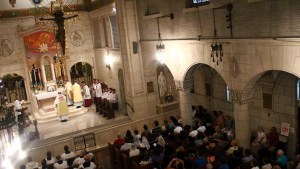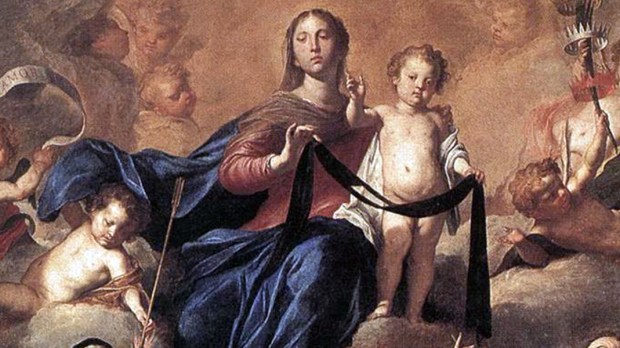Have you heard this advice before?
“Dress for the job you want, not the job you have.”
What can we learn from that, and how might that help us in our Christian discipleship?
The advice above might prompt us to think of uniforms. What’s the difference between a uniform and a costume? The latter is just a prop for pretending. I remember attending the opening of a business that offered military-themed hamburgers (really!) delivered by young men in combat-themed camouflage outfits. A Marine combat veteran, who had proudly worn his country’s uniform, sneered and derisively referred to the young man offering free hamburgers as “the kid in the costume.” But a uniform is a kind of declaration—a public announcement of commitment, trustworthiness and invitation. A uniform, properly worn, declares: “You may call on me to fulfill what this uniform represents.” So, one wearing combat fatigues may be called upon to fight, and one wearing surgical scrubs may be called upon to heal. A costume is a kind of pretending, used, say, by an actor to invite a willing suspension of disbelief. Used honestly, a costume may be worn rightly by an actor for entertainment. Used dishonestly, a costume is worn by a trickster to deceive.
What about a religious habit? Is it a costume, a uniform, or something else? I think of this because it’s been my great privilege recently to spend some time with Carmelite communities. Their religious habit (seen HERE) is inextricably entwined in their identity and spirituality. Their habit is an indispensable part of their vocation. (By contrast, as a Jesuit, I’ve been on missions where I might have been arrested—or worse—if I were wearing clerical garb, so I wore a civilian “costume.”) Carmelites associate their habit with their way of life, in imitation of Our Lady.

Read more:
A cassock: Work clothes, not a dress uniform
Here’s my take on the matter: like Our Lady, the habit of Carmel is at once simple, bridal and regal. Let’s address these in order.
Like Our Lady, the Carmelite habit is simple—needing no worldly adornment. Our Lady seeks nothing for herself. Her treasure is nothing that the world can give; her treasure is nothing that the world can take away.
Like Our Lady, the Carmelite habit is bridal—she is made ready as a complete gift to her beloved. “Let us rejoice and exult and give him the glory, for the marriage of the Lamb has come, and his bride has made herself ready …” (Rev. 19:7)
Like Our Lady, the Carmelite habit is regal—she has received all her treasures from her royal beloved. “Hear, O daughter, consider and incline your ear; forget your people and your father’s house, and the king will desire your beauty … Since he is your lord, bow to him … she is led to the king … With joy and gladness …” (Psalm 45)
Very few are called to the Carmelite vocation—but all can benefit from the Marian wisdom woven into the Carmelite habit. In the good but incomplete example of the Sisters, and in the perfect example of Our Lady, all of us are called to the detachment, generosity and humility that the Carmelite habit represents. All Christians are called to live as the Carmelite is clothed—as one with no earthly treasure, as one with no lasting earthly home, and as one preparing now to live for eternity. That’s why I started this essay with the business advice of “dressing for the job you want.” In imitation of Our Lady, the Carmelites are showing us by their appearance how we are to order our substance.
Okay—so with nearly perfect certainty I expect that no cloistered Carmelite will read this column, at least not online. What about the rest of us? How shall we live in light of Carmelite and Marian wisdom? Here are three steps.
- SIMPLICITY: Let’s make use of what we need, gladly and prudently. And let’s disentangle our hearts from the rest.
- GENEROSITY: Contrary to the world’s example, let’s be zealous rather than ambitious. Let’s seek to give rather than to acquire.
- GRATITUDE: Let’s count our blessings, savor our graces, and then sing the divine praises. After all, gratitude, says Saint Ignatius Loyola, is the virtue that is most pleasing to Heaven.
Our lives are a gift. We were made for a purpose. The world, the flesh and the devil seek to distract, beguile and enslave us by linking our hearts to what is unworthy of us. Our limited time, and our unmerited graces should be used to prepare us for the eternal glory and joy that our Heavenly Father has always wanted for us. Through the intercession of Our Lady of Mount Carmel, may we choose wisely.
When I write next, I will speak of an author whom you should come to know. Until then, let’s keep each other in prayer.

Read more:
Carmelites in Philadelphia rejuvenated with addition of 10 new nuns

